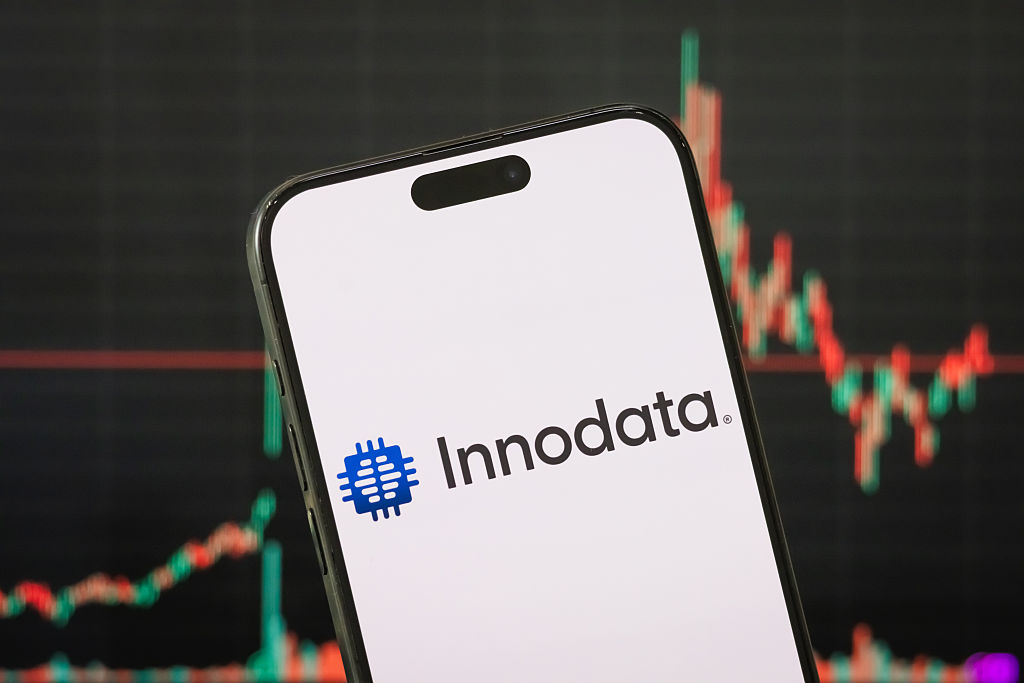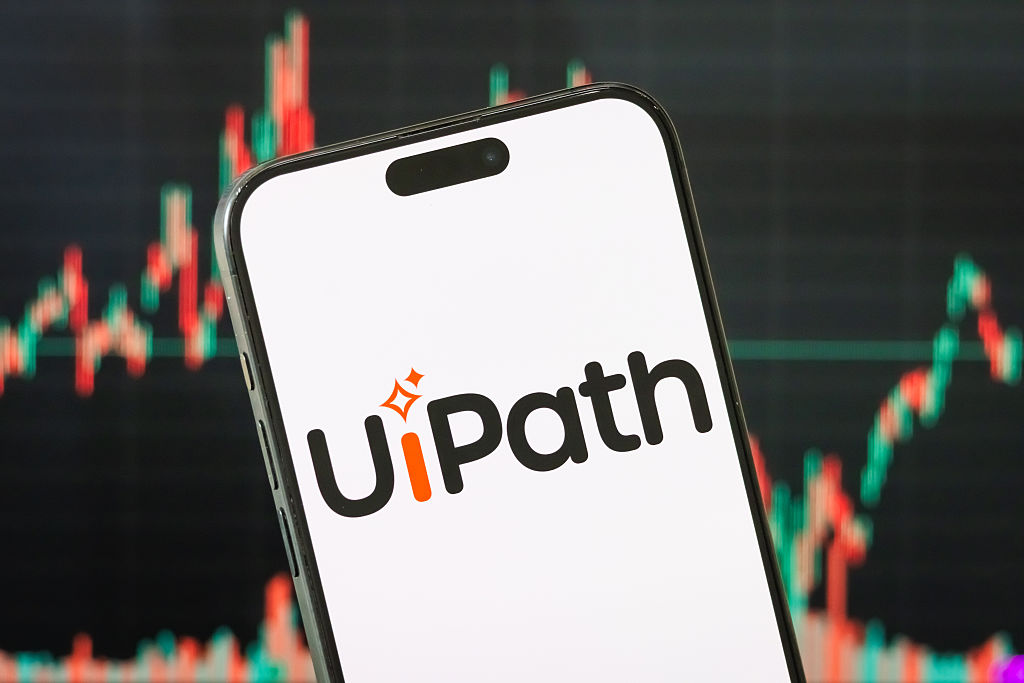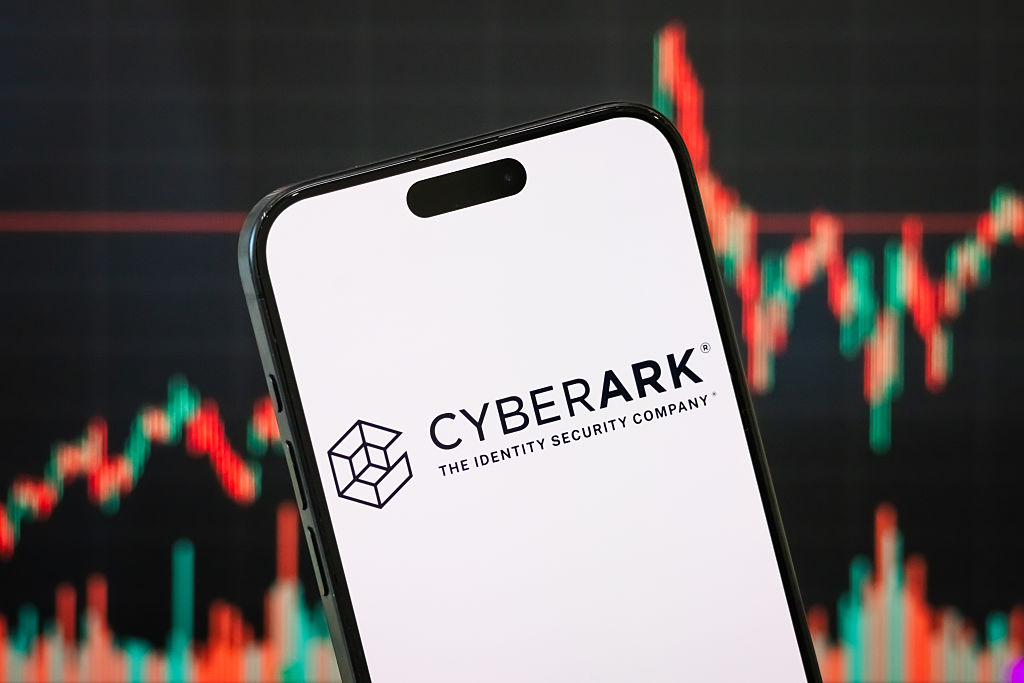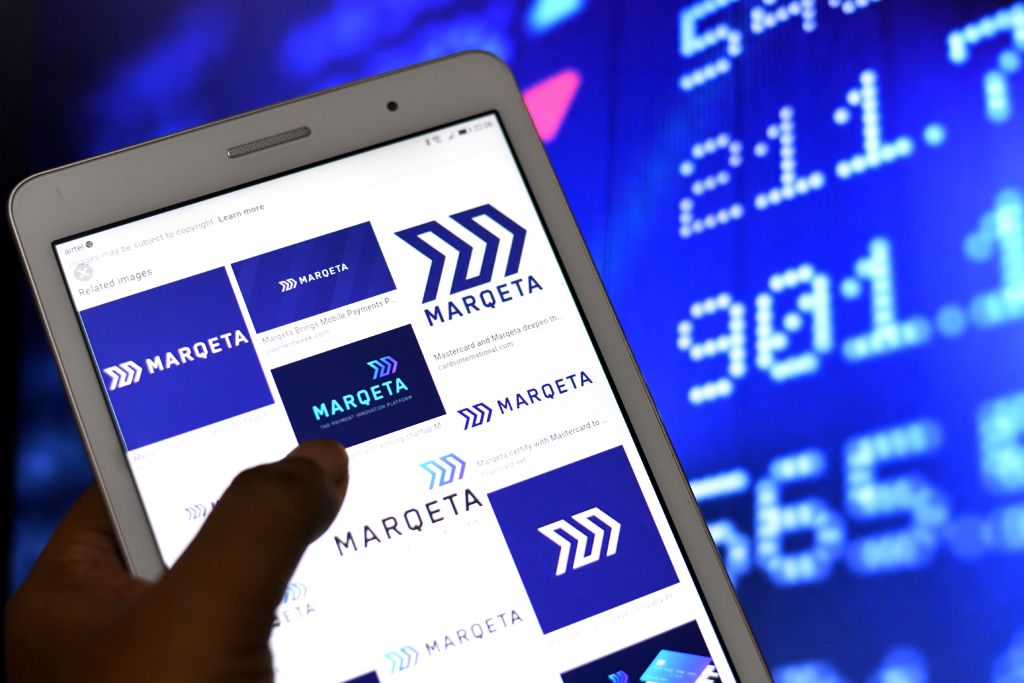Top Tech M&A 2025: The Prospects We're Watching
High interest rates and economic uncertainty have dimmed the market for big M&A tech deals, but the tides could be turning.


Profit and prosper with the best of Kiplinger's advice on investing, taxes, retirement, personal finance and much more. Delivered daily. Enter your email in the box and click Sign Me Up.
You are now subscribed
Your newsletter sign-up was successful
Want to add more newsletters?

Delivered daily
Kiplinger Today
Profit and prosper with the best of Kiplinger's advice on investing, taxes, retirement, personal finance and much more delivered daily. Smart money moves start here.

Sent five days a week
Kiplinger A Step Ahead
Get practical help to make better financial decisions in your everyday life, from spending to savings on top deals.

Delivered daily
Kiplinger Closing Bell
Get today's biggest financial and investing headlines delivered to your inbox every day the U.S. stock market is open.

Sent twice a week
Kiplinger Adviser Intel
Financial pros across the country share best practices and fresh tactics to preserve and grow your wealth.

Delivered weekly
Kiplinger Tax Tips
Trim your federal and state tax bills with practical tax-planning and tax-cutting strategies.

Sent twice a week
Kiplinger Retirement Tips
Your twice-a-week guide to planning and enjoying a financially secure and richly rewarding retirement

Sent bimonthly.
Kiplinger Adviser Angle
Insights for advisers, wealth managers and other financial professionals.

Sent twice a week
Kiplinger Investing Weekly
Your twice-a-week roundup of promising stocks, funds, companies and industries you should consider, ones you should avoid, and why.

Sent weekly for six weeks
Kiplinger Invest for Retirement
Your step-by-step six-part series on how to invest for retirement, from devising a successful strategy to exactly which investments to choose.
Salesforce (CRM) made headlines in late May when the tech giant announced an $8 billion deal to acquire Informatica (INFA), a leader in cloud-based data management.
The move wasn't just about bulking up Salesforce's enterprise software portfolio – it was also a strategic play on artificial intelligence (AI). Bloomberg reports that International Business Machines (IBM) was also in the running for the deal, highlighting just how competitive the AI space has become.
Large-scale acquisitions like this one have become relatively rare in the public markets lately.
From just $107.88 $24.99 for Kiplinger Personal Finance
Become a smarter, better informed investor. Subscribe from just $107.88 $24.99, plus get up to 4 Special Issues

Sign up for Kiplinger’s Free Newsletters
Profit and prosper with the best of expert advice on investing, taxes, retirement, personal finance and more - straight to your e-mail.
Profit and prosper with the best of expert advice - straight to your e-mail.
Higher interest rates, economic uncertainty, and market swings have made companies more cautious about making big deals.
In fact, the number of publicly traded companies pursuing large acquisitions has fallen sharply in recent years – from 1,423 in 2021 to just 815 so far in 2025, according to Kaidi Gao, senior venture capital analyst at PitchBook.
Still, M&A activity is starting to bubble up. The tech sector, in particular, seems more willing to open its wallet – especially when it comes to fast-growing fields such as AI, cybersecurity and fintech.
Just look at Meta Platforms (META), which is reportedly eyeing a $14 billion investment for a 49% stake in Scale AI. The deal would include not only a major equity share but also an effort to bring Scale's high-profile CEO, Alexandr Wang, on board.
Tech deals to watch
With this renewed momentum in tech dealmaking, it's worth asking: Who might be next? Here are four companies that could be on the radar.
Innodata

Innodata (INOD) isn't exactly a household name, but for over three decades, the company has been quietly building its credentials in digital content and data services. And since 2019, INOD has been aggressively pivoting its business to AI.
The company organizes its operations around two main customer groups: the "Builders" – think Big Tech firms actively developing their own generative AI models – and the "Adopters," businesses looking to integrate AI into their operations.
For the Builders, Innodata supplies the backbone: annotated datasets in over 85 languages, pipelines for fine-tuning and safety protocols to help ensure models behave responsibly.
Innodata's consulting arm manages the Adopters by helping clients utilize AI operations (AIOps), maintain model governance and implement domain-specific platforms in areas such as media monitoring and regulatory compliance.
One of Innodata's core strengths lies in its platform strategy. Unlike many smaller firms that focus on a single niche, Innodata has built a full-stack ecosystem.
Vertically, it offers tailored solutions for specific industries, including health care, legal and media. Horizontally, it supports broader AI functions including annotation, document intelligence and model evaluation.
At the center of it all is GoldenGate, Innodata's proprietary low-code platform that enables customers to build, deploy and scale AI applications securely. With a global team of over 6,000 specialists and operational hubs in more than 20 locations, the company can serve multinational clients with complex, multilingual needs.
The numbers tell a compelling story. In the first quarter of 2025, Innodata posted a 120% jump in year-over-year revenue, while net income surged to $7.8 million from $1 million the year prior.
Given its accelerating revenue, proprietary platforms and deep integration into the generative AI pipeline, Innodata could be an attractive acquisition target among tech stocks.
Companies such as Microsoft (MSFT), Alphabet's (GOOGL) Google, Amazon (AMZN), and yes, Meta, are pouring billions into AI, and owning a firm like Innodata could help them bolster the infrastructure they need to build smarter, faster and safer systems.
UiPath

UiPath (PATH) was one of the first movers in Robotic Process Automation (RPA) – a field that helps businesses eliminate repetitive tasks by letting software bots mimic human actions, such as logging into systems, copying and pasting data, or navigating through clunky legacy workflows.
But as automation needs have grown more complex, so, too, has UiPath's ambition.
Today, the company is positioning itself as more than just an RPA vendor. It's now offering a broad enterprise automation platform that's increasingly infused with AI.
The latest evolution is what UiPath calls "agentic automation." This is essentially AI-powered agents that can independently operate across different systems, make contextual decisions and adapt on the fly.
This new wave of automation is already seeing meaningful adoption. UiPath customers have run more than 250,000 AI agent tasks and launched over 11,000 automated processes using the company's Maestro orchestration engine.
For Q1 of fiscal 2026, the company reported $357 million in revenue, a 6% increase from the year prior. Annualized recurring revenue (ARR) grew by 12% to $1.7 billion.
PATH's balance sheet remains strong, too, with free cash flow of $117 million and $1.6 billion in cash, cash equivalents and marketable securities.
Strategic alliances have been a key part of UiPath's growth playbook. The company is working with Google Cloud on AI agents for medical summarization, integrating with Microsoft Copilot Studio for bidirectional workflows, and teaming up with Deloitte on enterprise resource planning (ERP) transformations.
High-profile customers such as Delta Air Lines (DAL) and Continental Resources add credibility to the platform's scalability and effectiveness.
As enterprise automation becomes a cornerstone of digital transformation, UiPath's combination of AI, orchestration and a robust partner ecosystem makes it an intriguing acquisition candidate.
Companies such as Microsoft, Oracle (ORCL) or ServiceNow (NOW) – each with their own automation ambitions – could benefit from bringing UiPath's capabilities in-house.
"UiPath's key advantage is solving enterprise AI's biggest challenge: trust and governance at scale," said Nandan Mullakara, founder of Bot Nirvana.
"They have existing customers already using the platform with established guardrails. As Agentic AI is expected to dominate automation, UiPath's enterprise relationships and proven orchestration infrastructure will become exponentially more valuable," Mullakara added.
CyberArk Software

CyberArk Software (CYBR) has long been a dominant player in privileged access management, helping enterprises control who and what gets access to critical systems.
But as cloud adoption, AI automation and machine-to-machine interactions redefine corporate IT environments, CyberArk has expanded far beyond its original niche.
Today, the company's Identity Security Platform offers protection not just for employees and administrators, but also for non-human users such as bots, devices and autonomous AI agents.
In the first quarter of 2025, CYBR revenue jumped 43% year-over-year to $318 million. Free cash flow hit $96 million, while non-GAAP operating margin improved to 18%, up from 15% the year before.
CyberArk's expansion hasn't been purely organic. In 2024, the company acquired Venafi for $1.5 billion, a deal that brought machine identity and certificate lifecycle management into its portfolio. That move alone expanded CyberArk's total addressable market by roughly $10 billion.
Then came the 2025 acquisition of Zilla Security, which enhanced the firm's capabilities in identity governance – a critical area as organizations look to tighten access controls across sprawling hybrid environments.
With recurring revenue, free cash flow, and a strong position in the AI-era security stack, CyberArk is starting to look like a natural acquisition candidate.
Tech giants such as Microsoft, Oracle, or even ServiceNow could see the cybersecurity stock as a strategic bolt-on to bolster their zero-trust and identity offerings.
And Alphabet's recent $33 billion bid for cloud security startup Wiz signals an appetite among large platform players for high-growth, identity-focused firms – and CyberArk fits that mold.
As identity becomes the new perimeter, its blend of technical depth and predictable financials makes it a valuable asset in a crowded field.
Marqeta

Marqeta (MQ) is a fintech company revolutionizing payments with its cloud-native card-issuing and processing platform.
Through flexible, open APIs, it enables clients to design fully customized debit, prepaid and credit card programs. Its modular offerings include money movement, risk management, rewards and seamless integration with issuing banks and network partners.
Customers can embed genuine payment experiences directly into their apps and websites, empowering launches such as Square's Cash Card, Affirm's BNPL cards, and crypto-enabled products including Bitpanda's new card across 26 European countries.
Marqeta has posted strong expansion in recent years. Total payment volume (TPV) climbed from $166 billion in 2022 to $291 billion in 2024.
In Q1 2025, TPV hit $84 billion, representing year-year growth of 27%. Net revenue rose 18% to $139 million and gross profit jumped 17% to $99 million. Marqeta's gross margin arrived at 71%, the same as the year prior.
Meanwhile, Marqeta's stock remains modestly valued at 2.6 times gross profit and its market cap hovers around $2.5 billion.
This makes it an interesting top tech deal target, especially in light of its issuer-processing infrastructure and strong balance sheet with about $1 billion in cash.
Suitors could include private equity groups or financial services incumbents such as Mastercard (MA), Visa (V), Fiserv (FI) and Fidelity National Information Services (FIS).
Related content
- 10 Major AI Companies You Should Know
- How to Protect Your Privacy While Using AI
- Best AI Stocks to Buy: Smart Artificial Intelligence Investments
Profit and prosper with the best of Kiplinger's advice on investing, taxes, retirement, personal finance and much more. Delivered daily. Enter your email in the box and click Sign Me Up.

Tom Taulli has been developing software since the 1980s when he was in high school. He sold his applications to a variety of publications. In college, he started his first company, which focused on the development of e-learning systems. He would go on to create other companies as well, including Hypermart.net that was sold to InfoSpace in 1996. Along the way, Tom has written columns for online publications such as Bloomberg, Forbes, Barron's and Kiplinger. He has also written a variety of books, including Artificial Intelligence Basics: A Non-Technical Introduction. He can be reached on Twitter at @ttaulli.
-
 Quiz: Do You Know How to Avoid the "Medigap Trap?"
Quiz: Do You Know How to Avoid the "Medigap Trap?"Quiz Test your basic knowledge of the "Medigap Trap" in our quick quiz.
-
 5 Top Tax-Efficient Mutual Funds for Smarter Investing
5 Top Tax-Efficient Mutual Funds for Smarter InvestingMutual funds are many things, but "tax-friendly" usually isn't one of them. These are the exceptions.
-
 AI Sparks Existential Crisis for Software Stocks
AI Sparks Existential Crisis for Software StocksThe Kiplinger Letter Fears that SaaS subscription software could be rendered obsolete by artificial intelligence make investors jittery.
-
 5 Top Tax-Efficient Mutual Funds for Smarter Investing
5 Top Tax-Efficient Mutual Funds for Smarter InvestingMutual funds are many things, but "tax-friendly" usually isn't one of them. These are the exceptions.
-
 Why Invest In Mutual Funds When ETFs Exist?
Why Invest In Mutual Funds When ETFs Exist?Exchange-traded funds are cheaper, more tax-efficient and more flexible. But don't put mutual funds out to pasture quite yet.
-
 Social Security Break-Even Math Is Helpful, But Don't Let It Dictate When You'll File
Social Security Break-Even Math Is Helpful, But Don't Let It Dictate When You'll FileYour Social Security break-even age tells you how long you'd need to live for delaying to pay off, but shouldn't be the sole basis for deciding when to claim.
-
 I'm an Opportunity Zone Pro: This Is How to Deliver Roth-Like Tax-Free Growth (Without Contribution Limits)
I'm an Opportunity Zone Pro: This Is How to Deliver Roth-Like Tax-Free Growth (Without Contribution Limits)Investors who combine Roth IRAs, the gold standard of tax-free savings, with qualified opportunity funds could enjoy decades of tax-free growth.
-
 One of the Most Powerful Wealth-Building Moves a Woman Can Make: A Midcareer Pivot
One of the Most Powerful Wealth-Building Moves a Woman Can Make: A Midcareer PivotIf it feels like you can't sustain what you're doing for the next 20 years, it's time for an honest look at what's draining you and what energizes you.
-
 Stocks Make More Big Up and Down Moves: Stock Market Today
Stocks Make More Big Up and Down Moves: Stock Market TodayThe impact of revolutionary technology has replaced world-changing trade policy as the major variable for markets, with mixed results for sectors and stocks.
-
 I'm a Wealth Adviser Obsessed With Mahjong: Here Are 8 Ways It Can Teach Us How to Manage Our Money
I'm a Wealth Adviser Obsessed With Mahjong: Here Are 8 Ways It Can Teach Us How to Manage Our MoneyThis increasingly popular Chinese game can teach us not only how to help manage our money but also how important it is to connect with other people.
-
 Looking for a Financial Book That Won't Put Your Young Adult to Sleep? This One Makes 'Cents'
Looking for a Financial Book That Won't Put Your Young Adult to Sleep? This One Makes 'Cents'"Wealth Your Way" by Cosmo DeStefano offers a highly accessible guide for young adults and their parents on building wealth through simple, consistent habits.